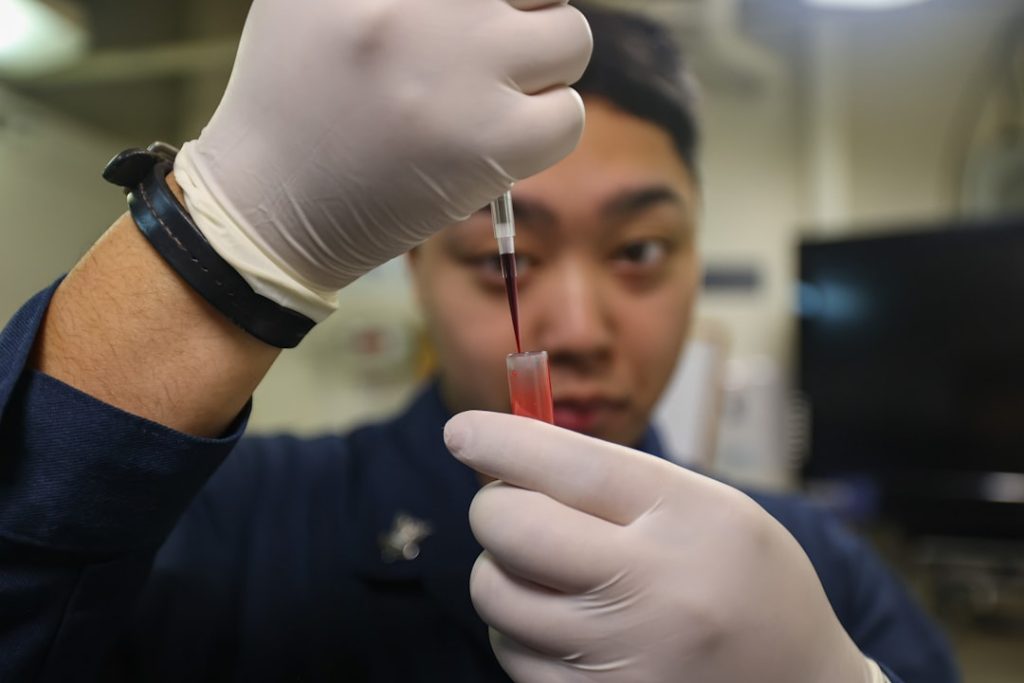Paid clinical research represents a vital intersection between the advancement of medical science and the participation of individuals willing to contribute to this progress. Clinical trials are structured studies that evaluate new drugs, treatments, or medical devices to determine their safety and efficacy before they are made available to the general public. These trials are essential for the development of innovative therapies that can significantly improve patient outcomes.
Participants in these studies often receive financial compensation for their time and involvement, which can serve as an incentive for many individuals to take part in research that might otherwise seem daunting or time-consuming. The landscape of clinical research has evolved significantly over the years, with an increasing number of trials being conducted across various medical fields. This growth has been fueled by advancements in technology, regulatory changes, and a greater emphasis on patient-centered care.
As a result, the recruitment of participants has become a critical component of successful clinical trials. Financial compensation not only acknowledges the time and effort participants invest but also helps to alleviate some of the barriers that may prevent individuals from engaging in research activities. This article will explore the multifaceted benefits of paid clinical research, highlighting its importance for both participants and the broader medical community.
Key Takeaways
- Paid clinical research offers financial compensation to participants.
- Participants gain access to innovative treatments and therapies.
- Involvement contributes to the advancement of medical science.
- Medical professionals provide close monitoring and care during studies.
- Ethical considerations ensure participant safety and informed consent.
Financial Compensation for Participants
One of the most immediate and tangible benefits of participating in paid clinical research is the financial compensation offered to participants. This compensation can vary widely depending on the nature of the study, its duration, and the specific requirements involved. For instance, participants in a Phase I trial, which often involves testing a new drug for the first time in humans, may receive higher compensation due to the increased risks and time commitment associated with these early-stage studies.
In contrast, observational studies or those requiring less intensive monitoring may offer lower compensation. The financial aspect of participation can be particularly appealing to individuals who may be facing economic challenges or who are looking for ways to supplement their income. For many, the compensation received can help cover everyday expenses or provide financial relief during difficult times.
Moreover, this financial incentive can encourage a more diverse pool of participants, ensuring that clinical trials reflect a broader demographic spectrum. This diversity is crucial for understanding how different populations respond to treatments, ultimately leading to more effective and inclusive healthcare solutions.
Access to Cutting-Edge Treatments and Therapies

Participating in paid clinical research often grants individuals access to cutting-edge treatments and therapies that are not yet available to the general public. Many clinical trials focus on innovative drugs or procedures that have shown promise in preclinical studies but require further testing to confirm their safety and efficacy. For patients with chronic or life-threatening conditions, enrolling in a clinical trial can provide an opportunity to receive potentially life-saving treatments that they might not otherwise have access to.
For example, individuals suffering from advanced cancer may find themselves eligible for trials testing novel immunotherapies or targeted therapies that are still in development. These treatments may offer hope when conventional therapies have failed or when patients have exhausted all other options. Additionally, even if a participant does not experience a direct benefit from the treatment being tested, they may still gain valuable insights into their condition through close monitoring and assessments conducted during the trial.
This access to advanced medical care can be particularly significant for those who live in areas with limited healthcare resources.
Contribution to Advancing Medical Science
| Metric | Description | Value | Unit | Year |
|---|---|---|---|---|
| Number of Published Research Papers | Total peer-reviewed articles published in medical journals | 1,250 | papers | 2023 |
| Clinical Trials Conducted | Number of clinical trials initiated or completed | 85 | trials | 2023 |
| New Medical Patents Filed | Patents related to medical devices, drugs, or procedures | 40 | patents | 2023 |
| Collaborations with Research Institutions | Number of active partnerships with universities and research centers | 15 | partnerships | 2023 |
| Medical Conferences Presented | Presentations or posters delivered at scientific meetings | 60 | presentations | 2023 |
| Research Funding Secured | Grants and funding received for medical research projects | 12 | million | 2023 |
| New Treatment Protocols Developed | Innovative clinical guidelines or therapies introduced | 5 | protocols | 2023 |
Engaging in paid clinical research allows participants to play an active role in advancing medical science. Each trial contributes valuable data that researchers analyze to understand how new treatments work and how they can be improved. By participating, individuals become part of a larger effort to develop new therapies that could benefit countless others in the future.
This sense of contribution can be empowering for participants, as they recognize that their involvement may lead to breakthroughs that enhance healthcare for future generations. Moreover, clinical trials often focus on specific populations or conditions that have historically been underrepresented in medical research. By participating in these studies, individuals can help ensure that diverse perspectives and experiences are included in the data collected.
This inclusivity is essential for developing treatments that are effective across different demographics, ultimately leading to more equitable healthcare solutions. The knowledge gained from these trials not only informs future research but also shapes clinical guidelines and practices that impact patient care on a global scale.
Close Monitoring and Care from Medical Professionals
Participants in paid clinical research benefit from close monitoring and care provided by medical professionals throughout the trial process. This level of attention is often more comprehensive than what patients might receive during standard medical care. Clinical trials typically involve regular check-ups, assessments, and follow-up appointments designed to monitor participants’ health and response to the treatment being tested.
This rigorous oversight ensures that any adverse effects or complications are promptly addressed, providing an added layer of safety for participants. Additionally, participants often have access to specialized healthcare providers who are experts in the field related to the trial. This access can lead to enhanced care and support, as these professionals are not only focused on the trial but also on the overall well-being of the participants.
For individuals with complex health issues or those who may feel lost within the traditional healthcare system, this level of personalized attention can be invaluable. The experience gained from participating in a clinical trial can also empower individuals with knowledge about their health conditions and treatment options.
Opportunity for Those with Limited Access to Healthcare

For many individuals, particularly those from underserved communities or low-income backgrounds, participating in paid clinical research can provide an opportunity for access to healthcare services that they might otherwise lack. Clinical trials often cover all associated medical costs related to participation, including tests, procedures, and medications administered during the study. This financial coverage can alleviate some of the burdens associated with seeking medical care, making it more feasible for individuals who may struggle with healthcare expenses.
Moreover, clinical trials are often conducted at academic medical centers or research institutions that may offer additional resources and support services. Participants may benefit from access to specialists, educational materials, and support groups that can enhance their understanding of their health conditions and treatment options. For those who have faced barriers to accessing quality healthcare due to socioeconomic factors or geographic limitations, enrolling in a clinical trial can serve as a gateway to improved health outcomes and greater health literacy.
Potential for Personal Health Benefits
While financial compensation and access to cutting-edge treatments are significant draws for many participants in paid clinical research, there is also the potential for personal health benefits beyond what is being tested in the trial itself. The close monitoring and regular check-ups associated with clinical trials can lead to early detection of health issues that might otherwise go unnoticed. Participants may receive comprehensive evaluations that include screenings for conditions such as hypertension, diabetes, or other chronic diseases.
Furthermore, being part of a clinical trial often encourages individuals to take a more active role in their health management. The educational components of many studies can empower participants with knowledge about their conditions and treatment options, fostering a sense of agency over their health decisions. This proactive approach can lead to healthier lifestyle choices and better adherence to treatment regimens, ultimately improving overall well-being.
Ethical Considerations in Paid Clinical Research
Despite the numerous benefits associated with paid clinical research, ethical considerations must be carefully navigated to ensure participant safety and informed consent. The recruitment process should prioritize transparency, providing potential participants with clear information about the study’s purpose, procedures, risks, and potential benefits. Informed consent is a cornerstone of ethical research practices; participants must fully understand what they are agreeing to before enrolling in a trial.
Additionally, researchers must be vigilant about ensuring that financial compensation does not unduly influence individuals’ decisions to participate in studies. While compensation is an important aspect of recruitment, it should not overshadow the potential risks involved or lead individuals to make uninformed choices about their health. Ethical oversight by institutional review boards (IRBs) plays a crucial role in safeguarding participant welfare and ensuring that studies adhere to established ethical standards.
In conclusion, while paid clinical research offers numerous advantages for participants—from financial compensation and access to innovative treatments to contributing to scientific advancement—ethical considerations remain paramount in ensuring that these studies are conducted responsibly and with respect for participant autonomy and safety.




